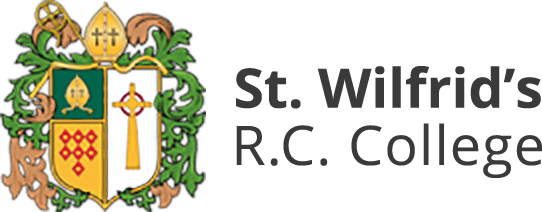“Learning a language is a liberation from insularity and provides an opening to other cultures; It helps to equip pupils with the knowledge and cultural capital they need to succeed in life”.
Our MFL aims are to communicate our enthusiasm and passion for languages to pupils, to help them to realise their God-given potential, gain access to other cultures and ways of life and enjoy their language learning experience. We believe that it is an essential skill that all students should have in an increasingly globalised economy. Learning a foreign language enhances future job prospects and provides an enriching experience that improves intercultural understanding, communication skills and broadens horizons. Through this understanding, we wish to enable our students to consider others’ points of view, ways of life and to develop a tolerance and mutual respect for all citizens of the world.
Through our taught curriculum, we aim to pursue excellence while demonstrating our Catholic ethos:
- To ensure that pupils can communicate in the target language by the time they complete their MFL studies.
- To develop listening, speaking, reading and writing skills and also appreciate how these skills are interconnected.
- To allow students to develop a strong grounding in grammar, vocabulary and phonics.
- To help students understand and respond to spoken and written language from a variety of authentic sources.
- To enable students to speak with increasing confidence, fluency and spontaneity, finding ways of communicating what they want to say, including through discussion and asking questions, and continually improving the accuracy of their pronunciation and intonation.
- To ensure students write at varying length, for different purposes and audiences, using the variety of grammatical structures that they have learnt.
- To allow students to develop a sound grammatical knowledge, so that they manipulate structures for themselves and communicate in a range of different tenses.
- To develop confident, independent and reflective language learners.
- To raise pupils’ awareness of different cultures, giving them a broader perspective on the world.
- To highlight the career and enrichment opportunities available to students who can communicate in another language.
As a department, MFL teachers are committed to supporting all language learners in developing a deeper understanding of the role that languages and play in our world.
All of our languages teachers have a passion for their subject and a strong understanding of how languages link to the wider world. A key part of this is sharing with pupils the opportunities learning languages may bring to our pupils, whether they actively use languages themselves in the future, or merely use the skills that language-learning has developed with them, in a different context.
We teach our pupils that differences exist, and that these should be embraced and celebrated. In the MFL department, we go beyond the taught curriculum to provide opportunities to embrace new experiences, including MFL club, trips abroad and to local events and meals. We strongly believe that this gives MFL pupils of St Wilfrid’s the best chance of success in the wider world.
BCCET EYFS to KS2 MFL Overview
Knowledge Organisers
Year 9:
Year 11:

